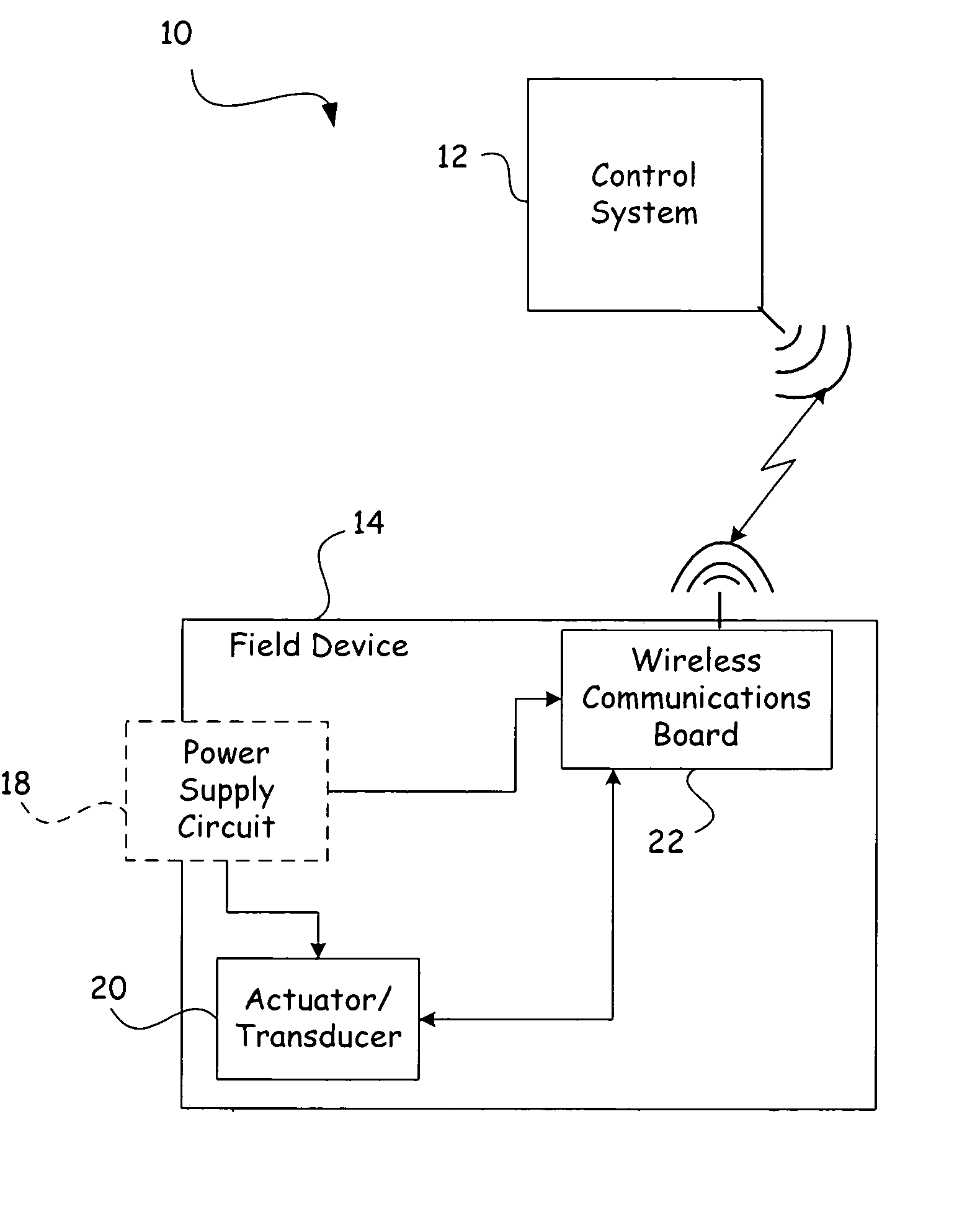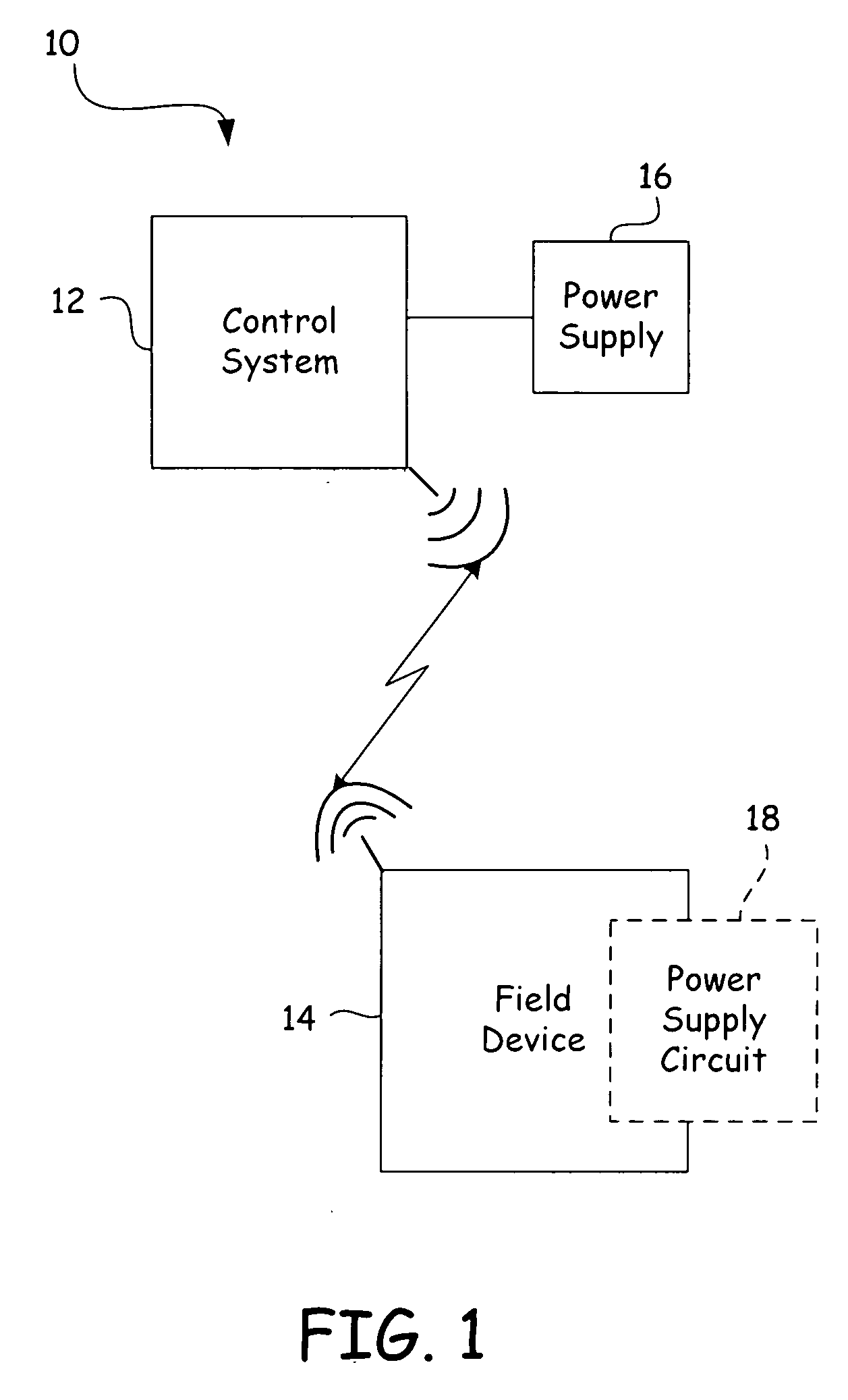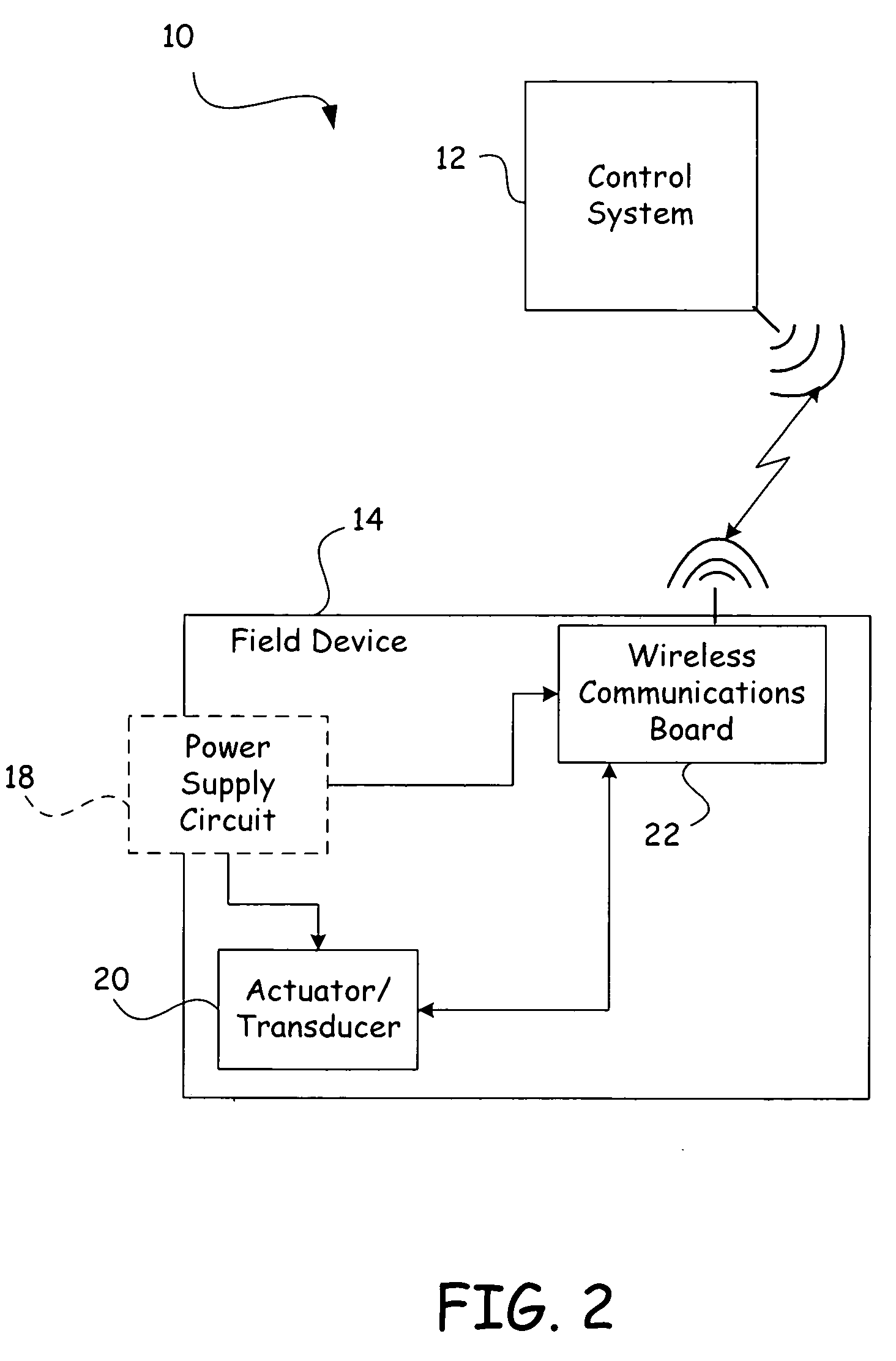Bus powered wireless transmitter
a wireless transmitter and bus technology, applied in the field of process control transmitters, can solve the problems of limited access to device diagnostics, low savings from wiring using the hart® protocol, and large amount of cabling cost in the home run cable, and achieve the effect of facilitating communication
- Summary
- Abstract
- Description
- Claims
- Application Information
AI Technical Summary
Benefits of technology
Problems solved by technology
Method used
Image
Examples
Embodiment Construction
[0018] The present invention takes advantage of available wireless technologies to free the process control network from its traditional wired topologies. Wireless transceivers can be used both to adapt existing process control networks to provide wireless communications capabilities and to construct process control networks without costly homerun cabling and without expensive power filters.
[0019] In general, the wireless transceivers send and receive data wirelessly, thereby divorcing the signaling or communications path from the physical wiring. While conventional process control networks provided power and signaling over the same set of wires, by handling the power supply to the field devices separately from the signaling or communications path in the present invention, the field devices are no longer bound to the physical wiring of a control network. Instead, data is transmitted wirelessly, and power is supplied to the field devices from a variety of different means, allowing t...
PUM
 Login to View More
Login to View More Abstract
Description
Claims
Application Information
 Login to View More
Login to View More - R&D
- Intellectual Property
- Life Sciences
- Materials
- Tech Scout
- Unparalleled Data Quality
- Higher Quality Content
- 60% Fewer Hallucinations
Browse by: Latest US Patents, China's latest patents, Technical Efficacy Thesaurus, Application Domain, Technology Topic, Popular Technical Reports.
© 2025 PatSnap. All rights reserved.Legal|Privacy policy|Modern Slavery Act Transparency Statement|Sitemap|About US| Contact US: help@patsnap.com



